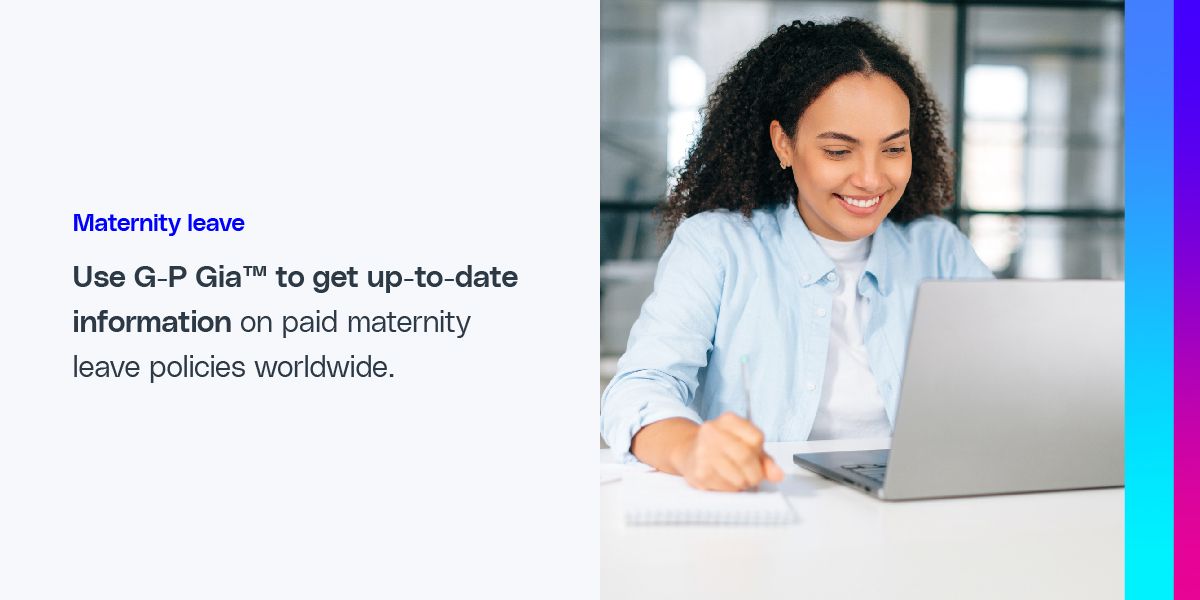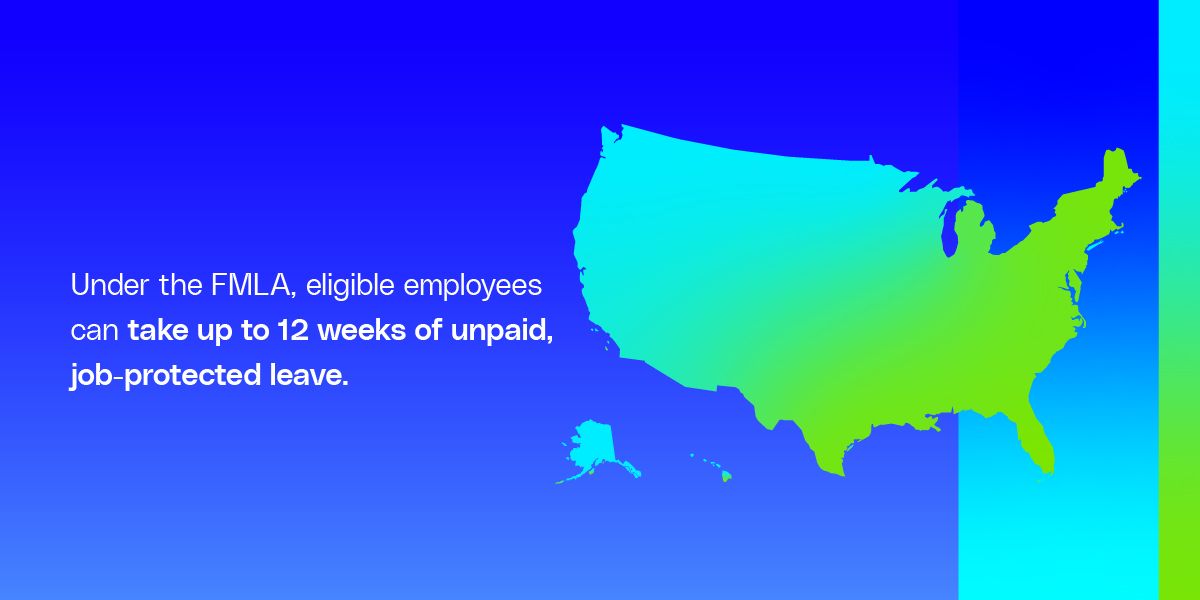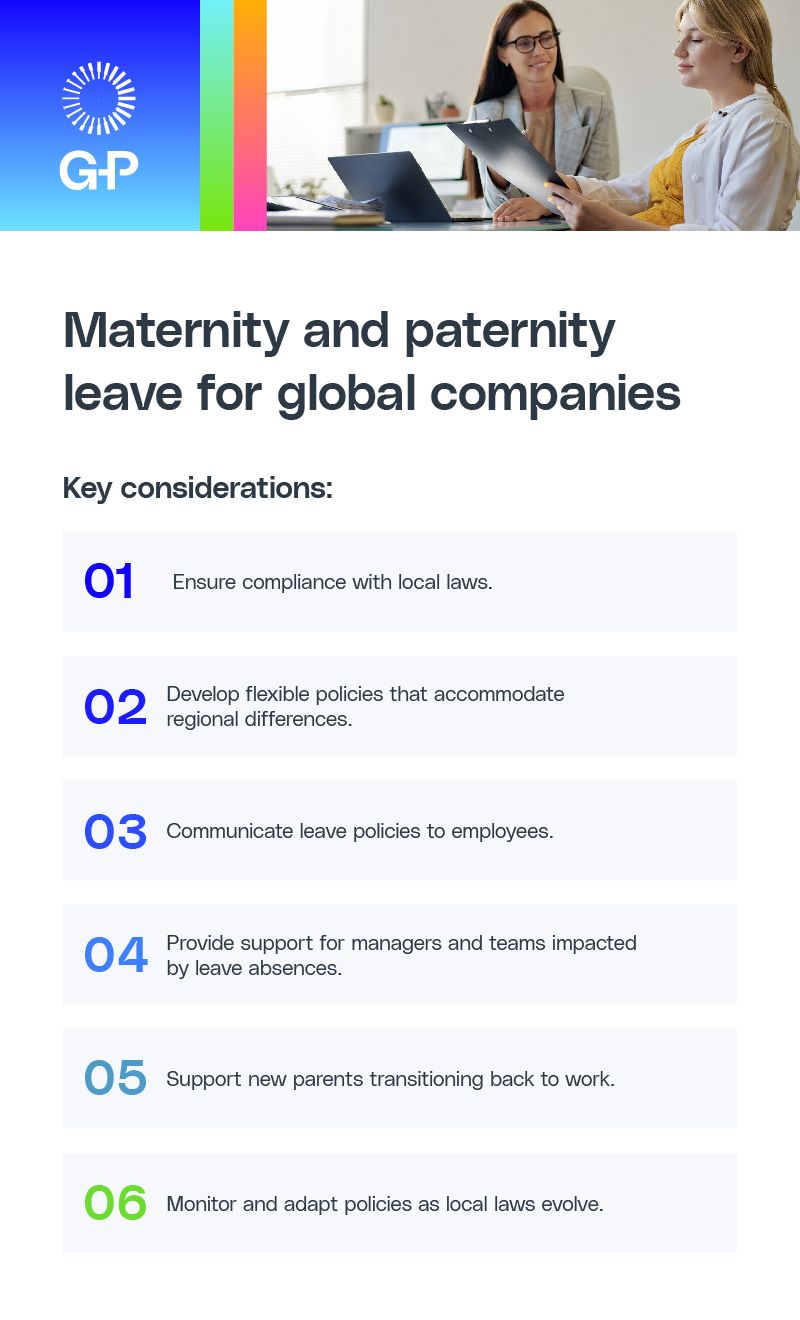As you scale globally, understanding maternity, paternity, and parental leave policies across countries is crucial for managing a global workforce.
This guide explores paternity and maternity leave by country. Follow these policies to ensure compliance with local regulations and foster a supportive work environment for global employees.
Which countries offer fully paid maternity leave?
In countries with 100% paid maternity leave, mothers receive their full salary throughout the leave. By offering fully paid maternity leave, these countries show a strong commitment to employee well-being and talent retention.
Here's a list of 100% paid maternity leave by country, along with the duration of the leave:
|
Country |
Duration of leave |
|---|---|
|
Austria |
16 weeks |
|
Hungary |
24 weeks |
|
Norway |
49 weeks, with an option to extend to 59 weeks at 80% pay |
|
Netherlands |
16 weeks |
|
Brazil |
17.1 weeks |
|
New Zealand |
26 weeks |
|
Chile |
18 weeks |
|
Germany |
14 weeks |
|
Mongolia |
14.3 weeks |
|
Philippines |
15 weeks |
|
Colombia |
18 weeks |
|
India |
26 weeks for the first and second child, 12 weeks for additional children |
|
Poland |
20 weeks |
|
Costa Rica |
16 weeks |
|
Israel |
14 weeks |
|
Portugal |
6 weeks |
|
Malaysia |
14 weeks |
|
Singapore |
16 weeks for children who are Singaporean citizens and 12 weeks for non-citizen children |
|
Estonia |
Up to 100 consecutive calendar days |
|
Mexico |
12 weeks |
|
Slovenia |
15 weeks |
|
Spain |
16 weeks |
|
France |
16 weeks, with 6 weeks before birth and 10 weeks after birth |
|
Russia |
20 weeks |
|
Cuba |
18 weeks |
|
Luxembourg |
16 weeks |
|
Republic of Congo |
15 weeks |
|
Algeria |
14 weeks |
|
Somalia |
14 weeks |
|
China |
12.6 weeks |
|
Panama |
14 weeks |
Maternity leave in various countries can be extended or modified. For example, in Austria, maternity leave may be extended by an additional four weeks in the case of a premature or complicated pregnancy. Poland increases maternity leave for pregnancies involving multiple births.

Besides the countries listed above, over 30 other countries legally mandate companies to offer fully paid maternity leave at varying durations. You can use G-P Gia™, our AI-powered global HR agent, to access up-to-date information on which countries have fully paid maternity leave and for how long.
Other countries that pay maternity leave
The following countries offer partially paid maternity leave:
|
Country |
Duration of paid maternity leave |
|---|---|
|
Iceland |
26 weeks at 80% pay |
|
Latvia |
16 weeks at 80% pay |
|
Slovakia |
34 weeks at 75% pay |
|
Italy |
21 weeks at 80% pay |
|
Belgium |
30 days at 82% and 10.8 weeks at 75% pay |
|
Democratic Republic of Congo |
14 weeks at 67% pay |
|
Central African Republic |
14 weeks at 50% pay |
|
Ghana |
12 weeks at 50% pay |
|
Japan |
14 weeks at 60% pay |
If you're looking to offer maternity leave in Europe, Africa, and beyond, make sure to research local leave requirements and factor them into your HR policies and budgets. Failure to comply with these regulations can have legal and reputational consequences.
What countries don't mandate paid maternity leave?
While most countries offer some form of paid maternity leave, the following nations don't have comprehensive policies:
-
U.S.
-
Papua New Guinea
-
Lesotho
-
Suriname
-
Eswatini
-
Micronesia
-
The Marshall Islands
-
Nauru
-
Palau
-
Tonga
The absence of paid maternity leave can affect companies operating in these countries. Employees may face financial hardship when taking time off to care for a newborn, leading to reduced productivity, increased stress, and potential turnover. However, you can offer supplemental maternity leave benefits to support employees and remain competitive in the global talent market.
What countries have the longest maternity leave?
Several countries offer extended maternity leave. New mothers get extra time off to recover from childbirth and bond with their infants. Countries with the longest maternity leave are:
|
Country |
Duration of maternity leave |
|---|---|
|
Bulgaria |
58.6 weeks at 90% pay |
|
Norway |
49 weeks, with an option to extend to 59 weeks at 80% pay |
|
Croatia |
30 weeks at 100% pay |
|
U.K. |
Up to 52 weeks, with 39 weeks at 90% pay |
|
Greece |
Up to 43 weeks, with 17 weeks at 100% pay and the rest at a reduced rate |
|
Slovakia |
34 weeks at 75% pay |
|
Republic of Ireland |
Up to 42 weeks, with 26 weeks paid at a flat rate and 16 weeks unpaid |
Managing extended maternity leave while maintaining business continuity can be challenging for global companies. However, the long-term benefits of supporting employees during this critical time are significant. Companies with generous maternity leave policies often experience more employee loyalty, less turnover, and a positive corporate culture.
U.S. maternity leave policies

In the U.S., the Family and Medical Leave Act (FMLA) is the primary federal legislation governing maternity leave. It provides up to 12 weeks of unpaid, job-protected leave. Eligible employees must work for a covered employer for at least 12 months and 1,250 hours. The FMLA only applies to companies with 50 or more employees that must be within a 75-mile radius of the worksite.
The Federal Employee Paid Leave Act (FEPLA) provides federal employees with up to 12 weeks of paid parental leave in connection with the birth, adoption, or foster placement of a child.
In the absence of federal legislation, some states offer paid family leave to provide partial wage replacement for employees taking care of a new child or a family member with a serious health condition. These states include:
-
California
-
New Jersey
-
Rhode Island
-
New York
-
Washington
-
Massachusetts
-
Connecticut
-
Oregon
-
District of Columbia
The average maternity leave in the U.S. is 10 weeks. Employees may take less maternity leave than available due to the financial impact of unpaid leave. Companies operating in the U.S. must navigate this patchwork of federal and state regulations to ensure compliance. Many employers offer supplemental paid maternity leave as part of their benefits package to support employees.
Which countries offer paid paternity leave?
Paid paternity leave is gaining traction globally. More countries are introducing formal policies. Countries with paid paternity leave policies include:
-
Japan: Up to 52 weeks, with the first six months at 67% pay
-
Iceland: Up to six months at 80% pay, with six weeks of parental leave that's transferable between parents
-
Finland: Up to 160 working days as part of a parental allowance for each parent
-
Spain: 16 weeks at 100% pay
-
Lithuania: 30 days at 77% pay
Countries like France, Portugal, and Slovenia offer paid parental leave that fathers can use. Other countries, including the U.S., India, and Ghana, don't mandate paid paternity leave. However, you can offer paternity leave as part of your employee benefits package, even if it's not legally required.
Maternity and paternity leave for global companies
Managing maternity, paternity, and parental leave benefits across different countries is tricky. Regardless of where your HQ is located, you must consider paternity and maternity leave in other countries when hiring globally.
To attract and retain top talent worldwide, global companies should offer maternity, paternity, or parental leave benefits that meet or exceed local requirements. Companies that provide additional time off and financial support help new parents navigate the challenges of balancing work and family responsibilities, increasing job satisfaction and loyalty.

Follow these key steps to build a strong maternity, paternity, or parental leave policy across borders:
-
Ensure compliance with local laws and regulations.
-
Develop flexible policies that accommodate regional differences.
-
Communicate leave policies to employees.
-
Provide support for managers and teams impacted by leave absences.
-
Support new parents transitioning back to work.
-
Monitor and adapt policies as local laws evolve.
Use Gia to ensure compliance with varying employee entitlements across the globe. Gia provides reliable, country-specific information, so you can automate leave calculation and generate compliant policies.
Manage global benefits with an Employer of Record
An Employer of Record (EOR) is a third-party organization that employs team members on behalf of another company. Partnering with an EOR simplifies international hiring and benefits administration, so you can hire anywhere with confidence.
A best-in-class EOR partner like G-P has the expertise and local knowledge to guide you through country-specific maternity, paternity, and parental leave requirements. EORs customize global benefits packages to each region, allowing you to build and support international teams without the legal stress.
EORs can help you:
-
Save time and money by eliminating the need for entity setup.
-
Stay current with changes in local maternity, paternity, or parental leave regulations.
-
Ensure accurate and timely payment of maternity, paternity, or parental leave benefits.
-
Manage the administrative tasks associated with maternity, paternity, or parental leave, like record-keeping and reporting.
-
Guide and support employees and managers throughout the leave process.
-
Mitigate the risk of noncompliance.
Partnering with an EOR is a cost-effective solution for global companies looking to provide comprehensive leave benefits to employees.














